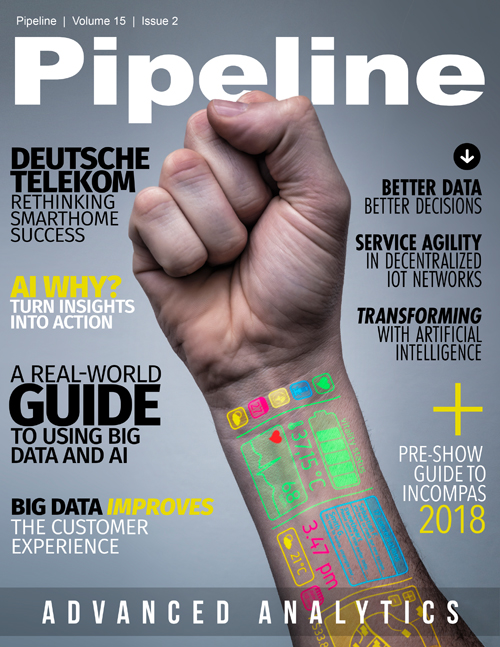Article Index for the September Issue:
September 2018 - Advanced Analytics
September 2018 - Advanced Analytics
The need for businesses to think small for smart home success
By: Thomas Rockmann
Ā» read this article
Better Data, Better Decisions
Big Data, BI, AI. These buzzwords seem to have been circulating in the industry for years now. They have been used as the battle cries for look-at-me technology companies who want to always appear on the edge of innovation. And, perhaps rightfully so. With the success of so many companies relying on their ability to leverage data, those that have tangible solutions should beat the drum oftenāand loudly. Recognizing it can be difficult to sift the hype from actual technical progress, itās important to note that the technology companies are typically the ones who lead the market in leveraging new technologyā¦Ā» read this article
Intelligent File Transfer as part of Service Agility in decentralized IoT Networks
By: Dmitry Kachan
Ā» read this article
AI Why? Turn Insights into Action by Being Data-Driven First
By: Robert Hingston
Ā» read this article
No Digital Transformation is Complete Without AI
By: Krzysztof Blusz
Ā» read this article
A Real-World Guide: Using Big Data Analytics and AI
Big data analytics and Artificial Intelligence (AI) have both had their fair share of hype in recent years. Despite the rhetoric, however, both these technologies, working in sync, are now starting to emerge as fundamental building blocks shaping future networks to be more reliable and more automatedāleading to a better customer experience. Not every implementation, though, has been executed in the optimal way, which means that there are still years of challenges ahead for some service providersā¦Ā» read this article
Pre-show Guide to INCOMPAS 2018
By: Chip Pickering
Ā» read this article
Leveraging Big Data to Improve the Customer Experience
By: Paul Hughes
Ā» read this article
Letter from the Editor
Dataāand what we do with itāmay be the final frontier for all of mankind. At its core, data is information. Information which has been digitized and, as a result, made instantly storable, accessible, and sharable. Data is knowledge. Something so strong, once obtained, is virtually impossible to take away. It makes us smarter. It makes us better. It makes us capable of things we would not be able to do without it. With data, we are building machines that build machines. Machines that can make independent decisions and do jobs that are impossible for humans to doā¦Ā» read this article
Telecom Industry News
August brought plenty of news in network evolution. INCOMPAS made two FCC filings to continue to promote healthy competition and innovation in building fiber, while efforts to expand networks into rural and unserved areas of the U.S. continued. Strategic partnerships to advance connected and self-driving cars were announced, and a new range of routers for first responders debuted. Newly released research showed Google Assistant is gaining on market leader Alexa, and that cybercrime is predicted to affect 146 billion consumer records within the next five yearsā¦Ā» read this article

















